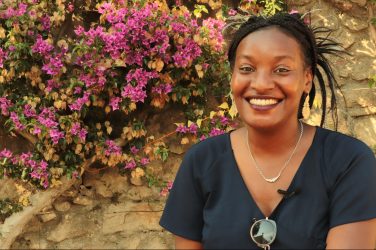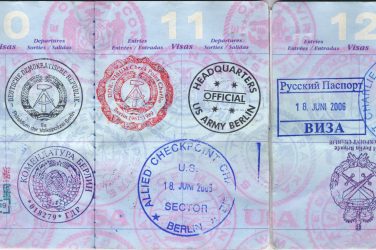After having lost her cat, E&M‘s Catarina Severino writes how she encountered unexpected things during her (still ongoing) search. At the end, caring for and loving animals is a political act that can bring about engagement and cooperation across political spectrums.
Loving an animal was one of the first kinds of love I knew. As a child, I remember there was always a tale wiggling through the corridors, or a turtle enjoying the sun on a rock.
Due to life’s unique way of contradicting itself, only recently was I able to have a pet of my own. A colleague was looking for homes for a litter of kittens, and I chose a playful little black one. I named him Dalí, an homage to his curious whiskers.
We adapted to each other very well. He was eager to explore, so I used to let him out to the backyard, calling him back a few minutes after. To my delight, Dalí came running, much like a dog would. Sadly, after four months, during a cold winter night, Dalí did not answer my call.
Caring for a different species
He had just turned 6 months old. As I intensely searched the neighborhood, people told me that he is probably just out looking for some female counterparts.
It made sense, since he had not yet been castrated – soon to be, but not yet. To this day, I believe some part of him might have known of my ball-cutting plans and decided to make a run for it.
Dalí appeared at a time when I was struggling with relationships. I guess the cliché of someone adopting a bunch of kittens when lonely must have some truth to it.
The cliché of someone adopting a bunch of kittens when lonely must have some truth to it
The company and care that is shared between animal and tutor is one of the purest forms of love I have encountered. That is why I decided to talk about it.
Healing: love at the center
I understand my feelings by noticing how I interact with animals, whether they are in my care or not. When I am sad or angry, I do not feel I can connect with them or, to be honest, with anyone else.

Only now, as I suffer the heartbreak of losing a loved pet, did I become aware of that and started to allow my broken heart to accept animal love and kindness: my parent’s three wonderfully caring dogs, their moody cat or a privileged sight of any wild or domesticated being.
Loving them and letting them love me, even through anger and sadness, feels healing. The connection between animals and humans expands to a feeling of unity with our endangered Mother Earth and all that makes her. And is that not what we, as a species, mostly crave? To feel connected? Even more so, when we live in a capitalist system that thrives on our loneliness.
The playful little black kitten never came back and the sadness of losing him still lingers, but what I want to talk about are the unexpected things I found during my search for Dalí: community and purpose.
Choosing to belong
For four years I have lived in a small village near Lisbon and pretty much kept to myself. That was the way I was raised.
Working in Lisbon and having my friends there, I came home to sleep and not much else. With Dalí in my life, that changed, as being at home became synonymous to snuggles, play, caring and observing that fascinating and loving being interacting with the world.
It was only when I left the house to look for him that I got to learn the name of my neighbors. With rare exceptions, all of them were sympathetic with my situation and shared their own stories of losing a pet in this manner.
For some, cats – with their proven tendency to run away – were a project never to repeat, for others it was just a matter of increasing vigilance. For me… well, that is still a pending subject.
I filled mailboxes with pamphlets and asked the local grocery store owner – Sofia – to put up a poster, to which she quickly agreed. It is still there.
It was only when I left the house to look for him that I got to learn the name of my neighbors
One very cheerful neighbor even invited me in to his home and made sure I tried some homemade jeropiga and ginginha – two traditional Portuguese liquors. I got to learn all about the life of Mr. Pereira – who, as I found out, knew very well who I was by associating me with my family name – a common trait of small Portuguese villages and, I imagine, many others around the world. My family is deeply rooted in this region – Loures, a mostly rural municipality near Lisbon – although I, much like cats, have a tendency to run away and search for what is different and unknown.
The cause for animal well-being

During my search I discovered a cat colony in a yard not far from my house. I visited it several times and got to know its inhabitants, both human and feline.
No sign of Dalí, but I noticed that someone was feeding these cats. When talking to a local old lady, she told me that someone from an association had sterilized all the cats and took care of the colony.
That made me happy and curious: what association? Who is doing that?
I started searching online for associations around my living area and, of course, Facebook’s algorithm suggested more and more, in every part of the country. I was completely overwhelmed!
Strolling through their publications was an emotional rollercoaster: joy for all the happiness of adopted animals, anger and sadness for all the suffering ones. Yet, another thought crossed my mind: the sheer number of people involved in these projects – to the thousands, which, for the Portuguese, is significant.
Strolling through their publications was an emotional rollercoaster: joy for all the happiness of adopted animals, anger and sadness for all the suffering ones
The politics of animal care
It seemed about right: after all, one of the first “new” political parties that got a seat in the Portuguese Parliament some years ago was a party whose core business is animal wellbeing (Partido Animais, Pessoas e Natureza – translated as Party for Animals, People and Nature).
Moreover, even the most far-right politicians, such as André Ventura, leader of Portugal’s far-right party (in favor of deporting immigrants and sterilizing women that are “too fertile”) is the proud owner of António – a grey-and-white spotted cat – and is not shy of showing him off on Twitter.
Quando um deputado tenta trabalhar, mas o António tem outros planos para a tarde! ? pic.twitter.com/LR6JZkkbzT
— André Ventura (@AndreCVentura) March 2, 2021
Regarding the party PAN, one of the most recent developments was the renunciation of its leader, André Silva, of both his leadership and his mandate to the Portuguese parliament. And it was a pretty revolutionary one, considering his argument for leaving. In his own words (my translation):
“Five months ago I became a father. I feel that I should get in the fatherhood train in order to materialize values that I consider essential in both the private and public spheres.”
To me, this argument made clear that advocating for nature and animals is not an isolated act – it is deeply embedded in reprioritising relationships – both human and non-human – over any political or capitalist goal. Even more so, when coming from a male voice, systemically educated to prioritize leading over caring.
That is not to say that there are no disagreements or even contradictions between left and right about the substance of the animal cause.
One of the main ones is related to bullfighting. Considered a precious national tradition by mostly conservative parties, it is vehemently fought against by a more progressive side of the Portuguese social fabric, in which I proudly include myself.
Other deep contradictions exist within the movement for animal well-being.
Good intentions and their contradictions
As a disclaimer, I want to stress that all the animal well-being associations do an especially important job that no government authority is willing to take up. They sterilize, find homes and care for thousands of vulnerable animals.
After three weeks of searching and contacting all local associations, I finally learned who was taking care of the cat colony near my house.
Not an association, but one single person: Milu. I managed to contact her on social media and we arranged a meeting at the colony.
I met the passionate and extremely tired Milu on a sunny Sunday afternoon. As she got me up to speed about how to take care of the colony, she shared with me some insights of her journey: working by herself, she takes care of over ten colonies in an area covering around 50 km. When I say by herself, I mean in terms of work as well as in funding.
No help from associations or local governmental authorities, with the exception of some punctual ration donations from well-wishing individuals.

I was amazed and saddened. Her mother – she told me – did the same, at a great personal cost:
“I used to think that my mother didn’t care about me, only about the animals. Now, as life wants it, my son thinks the same of me. I was able to get a permit from the city hall to feed the cats, but that is it. I am not even allowed to receive surplus donations from supermarkets because I am not an association, so I fund it all myself, with a little help here and there from some kind people.”
The journey is just beginning
Our minds should always stay active in thinking how we can do better – for each other, for the animals and for the planet. I feel strongly that the way we relate to animals says a lot about our ability to respect and nurture all living beings – human and non-human, domestic and wild, animal and non-animal. And, most importantly, it says a lot about our capacity to love – which, in these days, is in high demand.
In an increasingly polarized society, the cause for animal well-being is a precious ground for cooperation
Since this transformative experience, I have been strengthening the belief that, in an increasingly polarized society, the cause for animal well-being is a precious ground for cooperation. Activists, members of associations and volunteers across the political spectrum are able to cooperate, despite disagreeing in pretty much everything else.
We are mobilized to love and care beyond the walls of our homes. We are engaged and cooperative in a time of increased disengagement and conflict alike. And, although some people choose to see this as an apolitical subject, in the Portuguese context the emergence of the political party PAN proves otherwise.
Myself, I don’t need to go that far: I consider loving and cooperating as inherently political and my recently discovered ability to love in difficult times is good enough proof of the potential of this cause for substantial and positive change. At the very least, it is changing me.
Cover photo: by Jerry Wang on Unsplash





